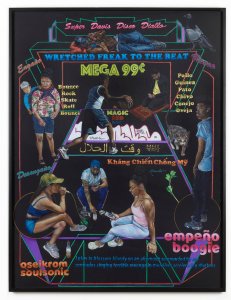Presented By: Institute for the Humanities
Hear, Here: Humanities Up Close
“Nation-States as Racial Capitalist Operability and the Doings that Evade and Disable It” with Jodi Melamed

With the “Hear, Here” series, we aim to facilitate conversations around new research in the humanities. Faculty fellows at the Institute for the Humanities will discuss a part of their current project in a short talk followed by a Q & A session.
This talk theorizes nation-states as bundles of command powers that are key to racial capitalist operability. It rethinks borders, citizenship, international law, war-making, and other state processes as ways racial capitalism operates by enacting “socially good” violence on people and places treated as killable. The intention of this operational account is not to make racial capitalism seem implacable, but to show that its doings are always threatened by protocols for making, continuing, and defending specific, grounded living (Black, Indigenous, migrant, and more). By refusing killability and authorizing mutual survival, such “other doings” evade and break state-capital violence circuits. Though pushed below or outside of ‘politics’, as conventionally understood, such “doings together” are powerful, transformative forces.
Jodi Melamed is a Normal Freehling Visiting Fellow at the Institute for the Humanities and a Professor of English and Race, Ethnic, and Indigenous Studies at Marquette University.
This talk theorizes nation-states as bundles of command powers that are key to racial capitalist operability. It rethinks borders, citizenship, international law, war-making, and other state processes as ways racial capitalism operates by enacting “socially good” violence on people and places treated as killable. The intention of this operational account is not to make racial capitalism seem implacable, but to show that its doings are always threatened by protocols for making, continuing, and defending specific, grounded living (Black, Indigenous, migrant, and more). By refusing killability and authorizing mutual survival, such “other doings” evade and break state-capital violence circuits. Though pushed below or outside of ‘politics’, as conventionally understood, such “doings together” are powerful, transformative forces.
Jodi Melamed is a Normal Freehling Visiting Fellow at the Institute for the Humanities and a Professor of English and Race, Ethnic, and Indigenous Studies at Marquette University.